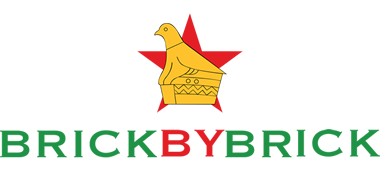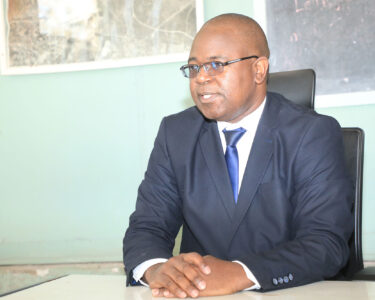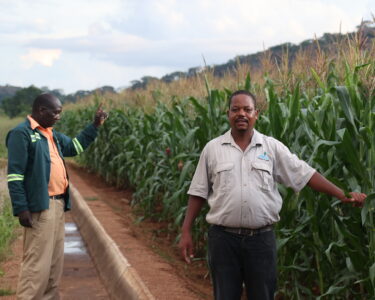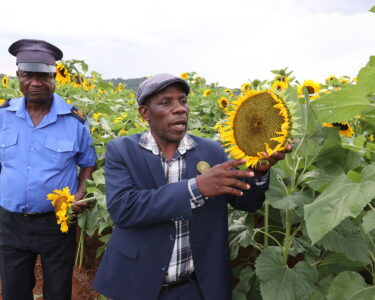Inequalities in land ownership were at the heart of Zimbabwe’s protracted Chimurenga war. Cde Chemist Ncube, born Noah Noel Mbira, is one of the freedom fighters who joined the liberation struggle in his early 20s in 1971. Half a century later, he is still preaching the land gospel. His wish? To demonstrate, in practical terms, the importance of land at his farm in Mazowe. Munyaradzi Huni reports . . .
Born in 1948, Cde Chemist had one wish in his nascent years – to become an aircraft technician. But all that changed when he joined the war of liberation whose driving force was reclaiming the land from the colonial oppressors. As a schoolboy, he had experienced the injustices of the obnoxious Land Apportionment Act when he was forcibly recruited to work for a white farmer in Marondera at the tender age of nine. How come whites had all these vast tracts of fertile land, while his own parents were condemned to barren pieces of land in the Tribal Trust Lands (TTLs), he must have wondered?
Instead of an aircraft technician, Noah Noel Mbira was going to become a commercial farmer. But, first, he had to fight to get the land, hence his decision to join the liberation struggle.
The war over, Cde Chemist found a job in the private sector before buying a house in one of Harare’s oldest suburbs, Highfield, home to some of Zimbabwe’s liberation war stalwarts, among them Robert Mugabe, Joshua Nkomo and Enos Nkala. In fact, it was at Enos Nkala’s house that the Zimbabwe African National Union (Zanu, now Zanu-PF) was formed in 1963.
The majority of houses in Harare’s high density suburbs are built on 300 square metre stands, hardly big enough for the aspiring peri-urban farmer. But this was no barrier to Cde Chemist, who immediately started growing maize and garlic at his house and other vacant spaces he could secure around the sprawling high-density suburb. With a growing population, there was never going to be enough land to meet the needs of urban farming, let alone Cde Chemist.
So, naturally, when the revolutionary land reform programme got underway in 2000, Cde Chemist was one of the first applicants for land. Although is application was deemed successful, he never got the prized offer letter. It was back to peri-urban farming until the military-assisted transition ushered into office the Second Republic in November 2017.

Two decades after his initial heartbreak, Cde Chemist re-applied for land on 21 May 2021. This time Lady Luck was smiling on him as he was allocated a farm measuring 31,9 hectares in Mazowe, Mashonaland Central Province.
It was, indeed, a dream come true.
Says Cde Chemist, a broad smile lighting up his face: “I am very happy that finally I got a farm. This has always been my dream. The only problem now is that I don’t have the resources to commence operations at the farm. I have demonstrated at my small field here in Highfield that I can be a very good farmer. Just look at the quality of my maize and my garlic. Horticulture is my number one passion.
“I need to commecialise my farming operations. I want to put into practice what President Mnangagwa is preaching – industrialising the rural areas through farming. I am not a new farmer. I already have what it takes to be a successful farmer.
“The farm itself has underground pipes and a borehole. All I need is irrigation equipment to go into full-time farming. But, at the moment, I am handicapped due to financial constraints.”
But Cde Chemist is not taking things lying down. He has already engaged the Department of Irrigation Development in the Ministry of Lands, Agriculture, Fisheries, Water and Rural Development which has since compiled a Technical Assessment Report focusing on the farm’s irrigation needs.
According to the report, Cde Chemist requires US$130 000 to set up the requisite irrigation infrastructure. “Once this irrigation system is in place, I will be up and running. I am quite sure I will be in a position to pay back the money in a few years,” says the war veteran.
“We need to invest in land full-time. The Second Republic has gone out of its way to show us the importance of investing in land and in value addition and beneficiation. I want to put about 18,6 hectares under irrigation.
“My fellow comrades know me as a hard worker. I might be 75 years old now, but I am still a hard worker. All I need is support.
“I am very happy that the Second Republic is showing that it values the contribution of war veterans, like me. The inclusion of a war veterans’ wing within the Zanu-PF structures was a masterstroke. This should have happened at independence in 1980. But, it’s better late than never.
“The current mantra nyika inovakwa nevene vayo is a carryover from the liberation struggle, where we used to say, ‘We are our own liberators’. This was one of our war cries. We used to sing, ‘Nyika yedu yeZimbabwe ndimo matakazvarirwa. Vana Mai naBaba ndimo mavari. Tinoda Zimbabwe nehupfumi hwayo hwese. Simuka Zimbabwe.’ The other one was: ‘Toyambuka Zambezi, ticharara mumakomo, kusvika yasununguka’. This is exactly what we did. We slept in the mountains until Zimbabwe won its independence.
“This was nyika inovakwa nevene vayo. To us it’s not a story. It’s reality. President Mnangagwa got it right. There is no one who is coming to help us, just like no one came to fight and win the liberation war for us. It’s history repeating itself.
“The hawks are still hovering above us. They don’t want us to become economically independent. They don’t want us to create jobs for ourselves. They want us to continue with the colonial mentality that our children and grandchildren should go to school simply in order for them to get jobs. Why should the government waste money on sending our children to school if they are going to apply for jobs with the same government? It’s time to change our mindset: Get your education and put it into good use — the land is there.

“Go and create industries in order to create employment. We are masters of our own destiny. When we went to war, some of us were in our teens. But we won the war because we knew no one, but ourselves, was going to liberate us. Today’s youths should know that they will have to fight for their economic independence. No one is going to do it for them.
“The Second Republic is creating the necessary conducive environment through pro-people policies. Our youths should grab this golden opportunity to empower themselves. Let me warn our youths, though, that Twitter, Facebook and the other social media platforms can be used to distract you from focusing on important issues,” said Cde Chemist before reliving his Chimurenga war days.
“I was part of the group of 27 comrades who opened the famous Mgagao Training Camp in Tanzania. These included Cdes Kenneth Gwindingwi, Josiah Tungamirai, Bethune and others. The camp commander was Cde Chimedza.
“From Mgagao we were transferred to Kongwa Transit Camp after which about 20 of us were taken to Chifombo, where we joined another group made up of 25 comrades. We spent about six months carrying materiel from Chifombo to the Zambezi River. Along with about seven other comrades from Zanla [Zimbabwe African National Liberation Army], among them Cdes Thomas Nhari, Rex Nhongo, Maurice, Shumba, Langton and others whose names I cannot remember, I volunteered to join Frelimo [Front for the Liberation of Mozambique] to fight against the Portuguese at Chifombo.
“The Frelimo comrades at Chifombo were under the command of Cde Armando Guebuza while Cde Joachim Chissano was the political commissar. [Both Guebuza and Chissano became successors to Mozambique’s founding president Samora Machel]. After a fierce battle against the Portuguese, we were addressed by Cde Samora Machel, who was Frelimo’s supreme commander at the time.
“On 30 June 1972, we were deployed into the-then Rhodesia. This was the famous group of 45, of which Cde Mayor Urimbo was the provincial secretary and Cde Chimurenga the provinicial commander. I was deployed into the Chamunuka Sector with Cde Kenneth Gwindingwi as sectorial commander and Cde Thomas Nhari as political commissar. The Nehanda Sector was under the command of Cde Rex Nhongo [aka Solomon Mujuru],” recalled Cde Chemist.’
Cde Chemist’s memories of the liberation struggle will definitely fill a whole book. But that is an issue for another day. For now, turning his former AK-47 rifle into a tillage unit is his top priority.
Putting a seal on his one-on-one with Brick by Brick, Cde Chemist says: “Land is basically what you are. Without land, you are nothing but a slave. There is very little that you can do without land. I am disappointed that a number of Zimbabweans don’t appreciate the importance of land. Sometimes, I feel some of them are still living in Rhodesia. Colonialism is still in their heads. After all these years, how can someone not recognise the importance of land? Can we not see the importance of land through the way whites are fighting us?
“I want my children to understand why I went to the liberation struggle. I want to show them the value of land at my farm. I want to leave them a lasting legacy.”





